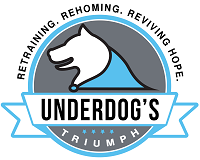
Summer is one of the most popular times to (ADOPT!) a new member of your family. So many folks believe that adopting a puppy is the better route because they are a “blank” slate which you can (and should) train. Many folks believe that puppies won’t have any behavioral issues or training issues built in because they’ve not had any time to learn any bad habits from previous owners or situations. However that sadly isn’t the case.
A lot of folks go out to buy a puppy from someone online, or someone they know. The issue here is that a majority of these sellers know absolutely bupkis about how to raise a puppy. Iowa’s lack of animal regulatory laws don’t help much either. We have no requirement for folks selling a small amount of dogs and worse yet no laws that prohibit when these puppies can be sold. And as we all know, the smaller a puppy is the cuter they are. So puppies go young. Super young.
One of my clients, who was working with me on a behavioral issue with their adolescent dog, told me they go their puppy at 4 weeks old. FOUR WEEKS folks. That’s insane to me. They told me they had to bottle feed the puppy after he started losing weight and refused to eat puppy food. Puppies aren’t fully weaned until between 6-8 weeks old. Additionally you have to worry about the lack of socialization these young dogs will have.
See puppies go through what’s known as a fear imprint period between 8 and 11 weeks (and again between 6 and 14 months) during this period of time things that are startle or scare the puppy can have a lasting imprint in their minds as being things they should be fearful of. When do most folks sell their puppy – eight weeks. Right when that fear imprint period starts. Then the puppy is taken away from their family, given new food with new people in a new home. In my mind that’s just setting the puppy up for failure.
Ideally sixteen weeks would be the best time for puppies to find their new home. At this age they have learned a lot of the body language social cues they need to be able to survive in the world. They know how to tell another dog that they want to play. They know how to tell another dog they do or do not like what they are doing. All using their own language through how they hold and carry their bodies. They learn all this magical communication from their siblings and moms and it’s incredibly difficult (if not impossible) to teach a dog how to speak “dog” as a human.
Additionally dogs learn one of the most important skills a dog can ever have. They learn about bite inhibition. This is when a puppy learns how hard they can bite down before it cause pain to whatever they are biting. It is amazingly important for a dog to know this skill. Imagine a situation when you accidentally step on Fido’s tail in the kitchen. It hurts. You startle him. He snaps. I’d 100% LOVE if he just mouthed me instead of biting down hard enough to break the skin. Puppies learn this skill through play with their siblings. Bite down too hard and your brother/sister doesn’t like that. They’ll yelp and stop playing with you. As a puppy, you have to learn how to play with your mouth and not cause pain so you can keep playing.
Socialization is extremely key too. Dogs go through a key socialization period up until 16 weeks / 4 months. During this time, you need to and should expose them to all sorts of random people, things and other critters. People wearing hats. People holding umbrellas. Tall people. Short people. Kids. Elderly. And more. But exposure can’t be the only thing you do. The exposure has to be a positive one. The puppy needs to see the novel thing and walk away thinking “MAN was that thing great!” Puppies are going through that fear imprint period too so interactions with novel things must be positive ones.
In theory, RESPONSIBLE breeder should know all about fear imprint stages, and how key socialization is to their wards. But in practice, this knowledge seems few and far between. In my opinion, adopting a slightly older dog 16 weeks / 4 months or greater from a shelter ensures you with the best outcome. These dogs are in facilities that KNOW about puppy development and have access to resources to get the puppy extra help if they need it. These puppies will have tons of exposure to different types of people (volunteers) and different sights/sounds. Plus you get to tell these breeders than you want a puppy raised right, in a home, surrounded by people and kids, not a puppy raised in a barn or garage and sold to make a quick buck.
AND if none of that has convinced you yet – you get to save a life. And that is probably one of the best gifts you could ever get you or your family.
